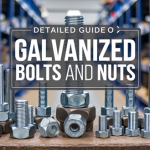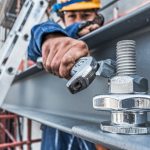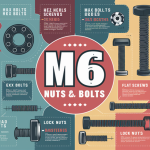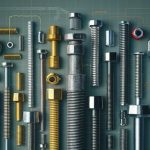Introduction:
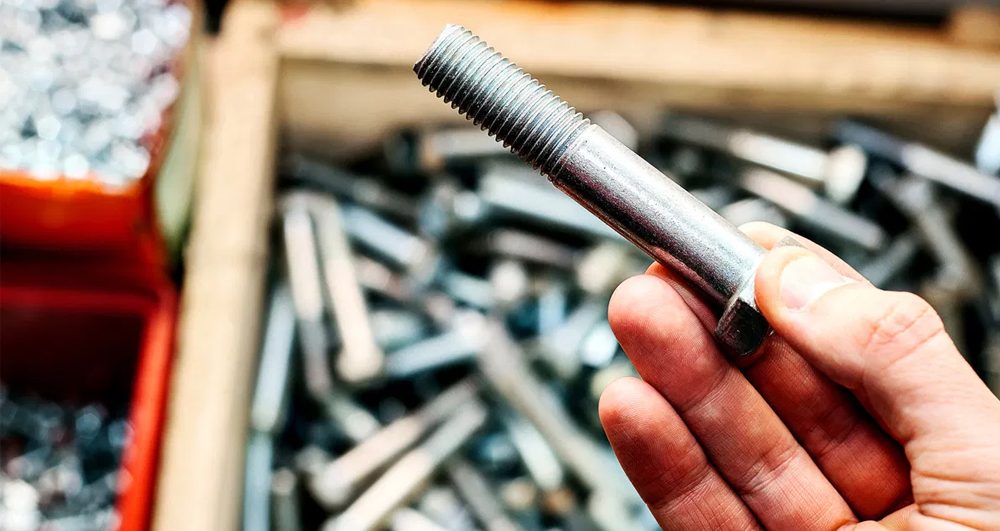
Fasteners, an often-overlooked tool in construction and other industries, may appear straightforward at first. But selecting fasteners for your project, appropriate full thread bolts Exporters takes more than simply tightening! Understanding Threaded Bolts and their varying world is the gateway to successful and long-term builds; young builders or anyone curious about fasteners ready to explore this fascinating realm should explore this intriguing realm and master fastener selection!
Exploring Bolt Options
Ready yourself for an incredible array! No two bolts are the same: each type offers unique strengths and characteristics designed for specific functions:
1. Hex Bolts
These all-around performers feature hexagonal heads for easy identification and tightening with wrenches for secure grip in tight spaces. Hex Head Bolts can offer alternatives with internal sockets designed specifically to hold Allen wrenches for flexible tightening angles in tight places.
2. Lag Bolts
When used on wood surfaces, Lag Bolts feature coarse threads with sharp points for secure connections that penetrate deeply for strong attachments. Such Bolts are great for creating secure yet adjustable connections. It is often used together with nuts and washers as nuts-washer assemblies to form secure and adjustable connections.
3. Eye Bolts
Eye bolts feature looped heads that serve as anchor points for cables or ropes and lifting applications. Among all of the varieties available today that play vital roles across industries, Eye Bolts are the favourite among users.
4. Machine Bolt
In terms of threading, you can purchase both uneven-threaded and fine-threaded machine bolts. For this category of fasteners, tightening is obtained with the help of square/hex nuts and a wrench. Their heads are square or hexagonal.
5. Carriage Bolt
The main use of carriage bolts is to attach components of furniture, but they also make great fasteners for key structural elements of outdoor connections like patios or decks. The round/square headed carriage bolts give a square-shaped collar and bristly threading. Tightening is also performed via wrench-driving the nuts. The diameter of the carriage bolt varies between 3/16 inches and 3/4 inches, whereas the available lengths are between 1/2 inches and 20 inches.
Read Also: Unsung Heroes: Acknowledging Hex Bolt Manufacturers in Construction
6. Stove Bolt
A stove bolt is a versatile one that it can be successfully used for all types of fastening tasks. The head of the stove bolt is similar to the one of screws and its shape is either round or oval.
7. Toggle Bolt
A toggle bolt, even called a hollow-wall anchor or a butterfly anchor, is a kind of fastener used to tighten objects to hollow walls, like drywall, plaster, or plywood.
8. Expansion Bolt
It comes with a plastic-made jacket that ‘inflates’ as you’re tightening the bolt. Their dimensions range between 1/8 inches and 1/2 inches in diameter and the length goes up to 8 inches. It is used for heavy-duty bolts.
Factors to Select Fasteners for Your Project
1. Fastener Strength
The fasteners must be strong enough to bear the load and stress. Stainless steel fasteners are strong, nonetheless, different types of fasteners offer dissimilar load-bearing and pressure powers.
2. Size, Type and Shape of the Fastener
The fasteners’ size, kind, and form should be suitable for the materials being connected, the installation, and the application, whether or not they must be permanent or if they might have to be changed without damaging the materials they are connecting. The thickness and kind of materials being bonded will help one decide the length, diameter, and thread count. Another safer substitute for standard screws is self-tapping and self-drilling screws.
3. Installation Method
The method of installation should be considered when selecting the type of fastener. For instance, if access is restricted, then a self-tapping screw might be the best choice than a bolt and nut.
4. Appearance
The appearance of the fasteners must be considered if they would be clear in the completed project. You will not necessarily need rivets but they may see well than screw heads on the outside part.
5. Ask For Expert Advice for Your Project
You will avoid problems and unnecessary expenses down the line if you can provide your hardware retailer or supplier with the right information. Experts bring a fresh, unbiased perspective to your project, helping you identify potential blind spots for improvement in choosing the fasteners.
6. Consider the Correct Materials of Construction
Different materials are utilized to make mechanical fasteners. Most work is using by carbon steel. Other materials include alloy and stainless steel. They all come with strength and workability. By considering these factors, you can select the proper material for your toggle bolts, safeguarding consistent performance and permanency in their intended application.
FAQs:
1. Can any old bolt work for my project?
Different bolts come equipped with different strengths, materials and sizes. Selecting fasteners for your project could cause wobbly furniture pieces or structural failure. Choosing one tailored to the task at hand ensures an uninterrupted building process and successful results.
2. How Can I Determine The Size Of Bolt I Need?
To help identify which bolt size best meets my requirements. Three elements need to be taken into consideration. Diameter (to fit into the hole), length (penetrate materials), and thread pitch (which helps facilitate assembly speed and grip). Precise measurements create professional-looking links that offer maximum security.
3. What exactly are torque wrenches, and do I need one?
Think of torque wrenches as bolt whisperers. Torque wrenches help ensure bolts are tightened just the right amount. Eliminating damage cause by over-tightening as well as loose connections. Due to under-tightening; precision is often key when it comes to safety and success.
4. Are All Bolts Equal in Strength?
No! Grade and material greatly influence their forte – with higher grades. Such as 8.8 handlings heavier loads while stainless steel provides improved rust resistance over regular steel.
Read Also:
> Young builders and curious minds: Explore the realm of threaded bolts!
> Innovations in Threaded Bolts: The Future of Fastening Technology!

